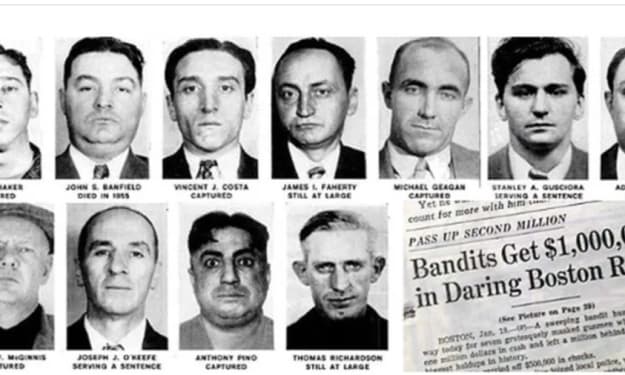Burning of Quran in Sweden: A Provocative Protest that Ignites Global .
Yesterday, we witnessed a shocking and controversial protest in Sweden that Yesterday, wehas left the world in disbelief. The plan was to burn the Quran, the Islamic holy book, in a public display of disrespect. And unfortunately, they went ahead with it.

Burning of Quran in Sweden: A Provocative Protest that Ignites Global OutrageBurning of Quran in Sweden: A Provocative Protest that Ignites Global Outra
Yesterday, we witnessed a shocking and controversial protest in Sweden that Yesterday, wehas left the world in disbelief. The plan was to burn the Quran, the Islamic holy book, in a public display of disrespect. And unfortunately, they went ahead with it.
Two men gathered outside a mosque in Stockholm, where one of them callously tore out pages from the Quran. He went on to stomp on the sacred text and even wrapped it with bacon, a deliberate act of provocation as pork is considered taboo in Islam. Finally, he set the Quran ablaze. This audacious act unfolded before approximately 200 people, who witnessed the sacrilege. Among them, some individuals shouted "God is great" in Arabic, while others disturbingly chanted, "Let it burn."
The man responsible for orchestrating this protest has been identified as a 30-year-old Iraqi refugee. His motive behind this shocking act was to advocate for the ban of the Quran in Sweden. However, the burning of the holy book on one of the holiest days in the Islamic calendar raises questions about the true intentions and significance of this protest.
If the aim of this protest was to offend and attract attention, then they have indeed succeeded. The repercussions of this provocative act have reverberated across the Islamic world. Morocco has withdrawn its envoy to Sweden, and Turkey is also expressing strong disapproval. Turkey's foreign minister deems such actions as unacceptable, stating that allowing them under the guise of freedom of expression is nothing short of complicity. In these strange times, even Turkey's perspective appears to make sense.
The people of Sweden themselves are not in favor of this protest. Their reactions reflect a growing concern about perpetual Islamophobia and its alarming trajectory. There is a rising fear about where this trend will ultimately lead. Many individuals are advocating for an end to such acts and emphasize that while freedom of speech is crucial, it should not be used as a means to humiliate others. Burning a religious book goes beyond freedom of speech; it is a deliberate provocation.
It is evident that this protest has not only angered the Islamic world and the general public but has also caused discontent among Sweden's allies. The repercussions of such acts extend beyond mere offense. Sweden's aspirations to join NATO are now facing hurdles from countries like Hungary and Turkey. Turkey, being one of the two Islamic countries within NATO, holds significant influence. This incident adds to the existing tensions between Turkey and Sweden, with the former displaying a hardened stance due to the presence of Kurdish activists seeking refuge in Sweden.
Unfortunately, this is not the first time Sweden has witnessed Quran burnings. Some argue that it falls under the umbrella of freedom of expression. However, one must question whether they have crossed a line. In this context, it is essential to highlight that around 64 percent of Sweden's population supports NATO, but there remains a significant portion that does not. Could this protest be part of a wider conspiracy to derail Sweden's NATO ambitions? Precedence suggests this possibility. In February, an anti-NATO protest in Sweden was planned, including the burning of the Quran. The police rightly intervened, blocking the protest. However, this time, they failed to prevent the desecration.
While the Swedish court deemed this protest legally permissible due to the absence of a security threat, it is essential to acknowledge that legality does not always align with morality. Sweden must swiftly realize the potential political consequences of such acts. It is crucial, especially if they aspire to join NATO or if they wish to be viewed as a country that respects religious sentiments. Burning any religious book should not be mistaken for freedom of expression but recognized for what it is—a hate crime and criminal incitement against a community.
Even the United States, often referred to as the self-appointed professor of democracy, has expressed its opinion on this matter. They consistently maintain that burning religious texts is disrespectful and hurtful. While it may be legal, it is far from appropriate. Sweden must now make a resolute decision. If they aim to join NATO, they cannot permit such acts. Even if NATO membership were not at stake, such acts should not be tolerated under any circumstances.
Imagine if a similar incident were to occur in Asia or Africa, for instance, in India, where a religious book is burned by an extremist individual. The Western response would undoubtedly label it as Islamophobia, a sign of backsliding democracy, and would feature prominently in their reports on religious freedoms. However, when Sweden engages in such actions, it is deemed legal but inappropriate—a glaring double standard. The Swedish Prime Minister himself acknowledged the discrepancy, stating that it was legal but not appropriate. Turkey, on the other hand, has been far more critical. Time will tell if their strong words translate into concrete action.
Meanwhile, in a different part of the world, France finds itself embroiled in chaos. The fatal shooting of a teenager has plunged the country into turmoil, leading to widespread riots, clashes, and a fierce standoff with the police. President Emmanuel Macron's condemnation of the riots has done little to assuage the anger of the people.
The protest erupted following the killing of a 17-year-old teenager named Nahil M in Ontar, a western suburb of Paris. Two policemen confronted Nahil, shouting at him, and in a horrifying turn of events, one officer drew his gun and callously shot the young boy at point-blank range. The authorities then attempted to cover up the truth, spreading false narratives through anonymous police sources, claiming that the teenager had intentionally driven his car into the officers.
However, photographic evidence emerged, painting a starkly different picture. The police's lies were exposed, and the officer who fired the fatal shot was taken into custody. He now faces charges of voluntary manslaughter. The court's decision to investigate the case indicates that the legal requirements for using a weapon were not met.
While action is being taken, the protesters demand more than just accountability. The victim's mother called for a march, taking to social media to voice her anguish and seek justice for her son. Their lawyer plans to file an additional complaint, accusing the police of false testimony. Public figures, including footballer Kylian Mbappe and actor Omar C, have joined the chorus, demanding justice for Nahil.
About the Creator
shoaib moon
Hi there! I'm shoaib moon, a passionate and experienced article writer with a knack for creating engaging and informative content. With [number of years] years of experience in the field, I have honed my skills in article writing.
Enjoyed the story? Support the Creator.
Subscribe for free to receive all their stories in your feed. You could also pledge your support or give them a one-off tip, letting them know you appreciate their work.






Comments
There are no comments for this story
Be the first to respond and start the conversation.